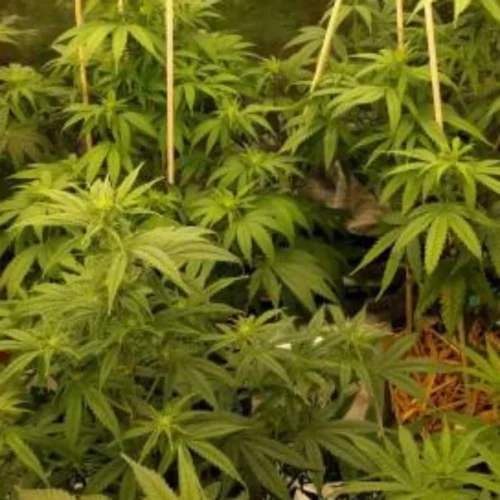Key Features of the Proposed Legislation
The proposed bill is designed to create a cannabis market that balances regulation with accessibility. Here are some of the key features of the legislation being voted on:
Legalization and Regulation
The bill sets out to legalize cannabis for adult use, introducing a regulated market where cannabis will be taxed. The proposed system also plans to set up a new body called the Cannabis Australia National Agency (CANA), which will be responsible for overseeing the licensing of cannabis businesses and maintaining a national marijuana strain registry. By creating CANA, lawmakers intend to ensure that the new cannabis market operates transparently and safely, with a clear regulatory framework designed to protect consumers and provide economic benefits to the nation.
Home Cultivation and Social Consumption Spaces
In addition to establishing a regulated market, the bill also focuses on expanding the rights of individuals to grow and consume cannabis. Home cultivation will be permitted, allowing adults to grow a limited number of plants for personal use. Furthermore, the legislation introduces provisions for cannabis cafes, spaces where adults will be able to consume cannabis socially. This move aims to create inclusive, regulated environments that allow cannabis users to enjoy the product without fear of stigma or legal repercussions. Personal processing of edibles will also be allowed, encouraging more diversity in the ways people choose to use cannabis at home.
Promos & Deals
A Non-Corporate, Equity-Focused Approach
One of the more unique aspects of the Greens’ proposal is its focus on ensuring the cannabis market is equitable and does not fall into the hands of large, profit-driven corporations. The Greens party has been vocal about avoiding a corporate takeover of the cannabis industry by big players like alcohol, tobacco, or pharmaceutical companies. Instead, the aim is to keep the market accessible and community-focused, ensuring that small businesses and individual cultivators have a fair shot at participating in the emerging cannabis market. This grassroots-focused approach has received considerable support during public consultations, reflecting a broader desire among Australians to avoid the corporatization that has affected other industries.

Broader Support for Legalization
The push for legalization in Australia is not happening in a vacuum. Around the globe, more and more countries are moving away from cannabis prohibition, and the Greens argue that Australia risks falling behind if it maintains its current patchwork of state-level reforms. Unlike the fragmented cannabis policies currently in place, this federal bill aims to create a cohesive, nationwide approach. Public consultations have demonstrated substantial support for such a unified and accessible model, highlighting the appetite among Australians for a clear, regulated approach to cannabis that benefits the wider community and not just large corporations.
Dissenting Report by Senator David Shoebridge
Senator David Shoebridge has been a strong advocate for the legalization of cannabis in Australia, presenting a detailed dissenting report in favor of the proposed bill. His argument centers around the idea that this bill represents the first and best chance to create a single, unified national cannabis market that can provide numerous benefits to Australians.
According to Senator Shoebridge:
- The bill will create a new sustainable industry with thousands of jobs across the country.
- It will take tens of thousands of people out of the criminal justice system, reducing the burden on law enforcement and the courts.
- For the first time, it will introduce quality control, strength, and labeling requirements on all cannabis products, ensuring consumer safety.
- It will take billions of dollars away from organized crime, disempowering drug dealers, and instead put that money into public revenue for essential services, such as drug rehabilitation programs.
- The bill will give Australians the freedom to choose if they want a beer or a cannabis drink to unwind after a long week, providing more personal freedom and choice.
Senator Shoebridge has been critical of the opposition to the bill, particularly from the Labor Party and the Coalition. He points out that millions of Australians want this reform, and millions more around the world already have access to legalized cannabis. He believes the opposition is motivated by outdated views and a lack of imagination, driven by corporate interests and a resistance to change.
The inquiry into the bill highlighted several key points:
- Cannabis use in Australia is extremely common, and the community broadly supports legalization.
- Leaving cannabis illegal causes numerous harms, whereas legalizing it would remove many of these harms, including the risks associated with an unregulated black market.
The Penington Institute, a key contributor to the inquiry, emphasized that cannabis prohibition has failed to control supply, has left the market in the hands of criminals, and costs billions of dollars in enforcement. Senator Shoebridge argues that the current approach is not working and that a regulated market would be more effective in reducing harm and improving public health outcomes.

A Defining Moment for Cannabis Policy in Australia
As November 27 approaches, the debate around cannabis legalization has reached fever pitch. The outcome of this vote will define Australia’s approach to cannabis for years to come. Should the bill pass, Australia would join a growing list of countries that have chosen to end cannabis prohibition in favor of a regulated, taxed market that offers adults more choices while minimizing the risks associated with an unregulated black market. For advocates of legalization, this moment represents a chance to push Australia towards a more progressive and socially responsible approach to cannabis.
The upcoming vote will not only influence policy but also serve as a reflection of changing public attitudes toward cannabis. With the global trend leaning towards legalization and regulation, many Australians are hoping that their government will align with this movement, establishing a market that works for everyone not just corporations. Whether the focus is on personal freedom, economic opportunities, or social justice, the outcome of this vote will have far-reaching consequences for individuals, businesses, and communities across the country.















